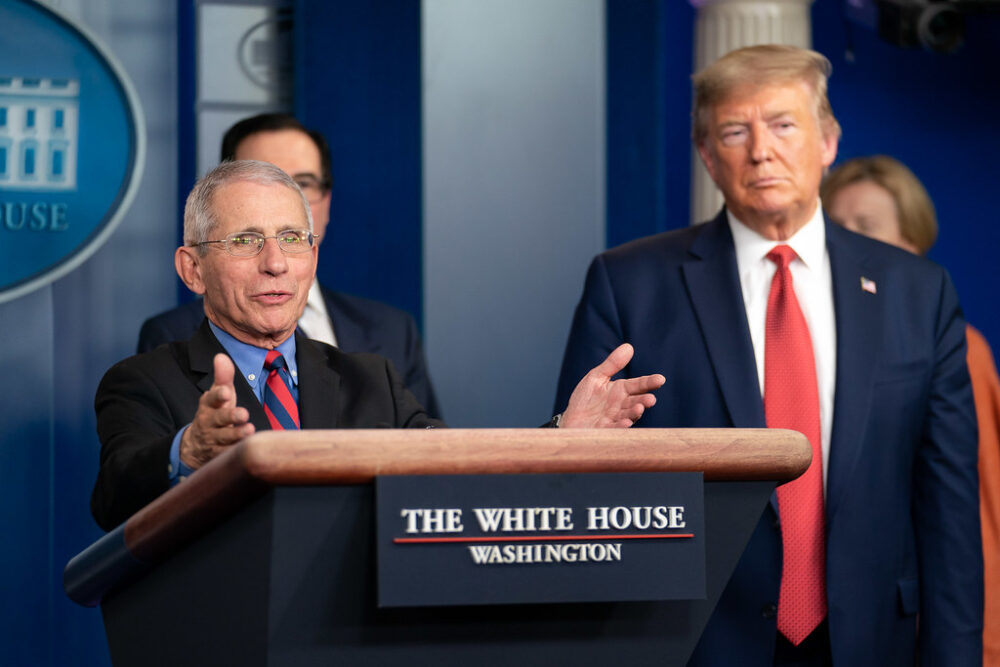The 2016 presidential election and victory of Donald Trump marked the start of a period scholars call the “post-truth” era. While this concept isn’t new, a post-truth society is characterized by the absence of shared objective standards for truth in favor of appeals to emotion or personal beliefs. Today, many politicians appeal to the emotional impulses of their voter bases, going so far as to reject expertise, rationality, and fact. This epistemic shift in the public discourse has politicized science, but it would be a mistake to assume that science was ever apolitical. Despite the satisfying notion that facts and objective truth eclipse subjectivity and personal biases, the reality is that empirical evidence means nothing without the power we give it to be an authority. This is because the very ways by which we acquire experimental knowledge have been weaponized in the public discourse to diminish its authority.
Despite the satisfying notion that facts and objective truth eclipse subjectivity and personal biases, the reality is that empirical evidence means nothing without the power we give it to be an authority.
One of the most compelling means of acquiring knowledge is empiricism, the foundation of the scientific method. Enlightenment philosophers prized the belief that objective truth exists outside of the subjective self and the importance of individual freedom and expression, and these ideals still maintain influence. However, there is a tension between the equality of individual expression and the power that scientists and experts have over the public in establishing knowledge.
The public must defer all the power to create knowledge to experts, but there’s often a disconnect in that creation process. Experts are aware that knowledge is tentative and develops over time — studies make conclusions from observed evidence, scientists peer review those studies, and subsequent experiments validate those conclusions. However, when this discourse is translated into the language of the public, the jargon that characterizes the conclusions also changes. What scientists call statistically significant, the public might call fact, and the label of “fact” ends debate. Therefore, when that fact is proven wrong — that is, a conclusion is corrected by more evidence — it destabilizes the legitimacy of expertise.
What scientists call statistically significant, the public might call fact, and the label of “fact” ends debate.
This brings us to the power problem of expertise. Expertise has a monopoly on facts, and discussions about knowledge face a dichotomization between fact and opinion. Knowledge and facts from experts are deemed “rational,” and that classification creates the foil of “opinions” of non-experts as “irrational” or “ignorant,” delegitimizing the voices of non-experts. The appeal to expertise is thus a political and rhetorical tool for effectively ending debates because of the asymmetry of power between experts and the public. Appealing to expertise might be premised on the rigor and refinement of knowledge that come with years of experience, but rhetorically, it nullifies discourse. Within this hierarchy of acceptable knowledge, we prize rationality and fact over opinion, emotion, and irrationality — expertise over public “opinion.” Because the public has no means to establish their legitimacy, they expect experts to be infallible, but when experts fail to meet those impossible expectations or when they’re on the opposing side of an issue, they’re blamed and criticized more heavily. This rupture in expectation takes valid, critical skepticism to another level, from reasonable caution to outright rejection. Because experts tend to align more to the political left, expertise thus has a perceived political position, and accepting or rejecting expertise becomes political. The rise in partisan think tanks and special-interest group research has resulted in the exploitation of this scholarly discourse, granting bad actors the title of expert and legitimizing the relatively powerless detractors of left-wing experts. Science is not always final, but simultaneously, that’s precisely the reason dissenting opinions and “alternative facts” can have legitimacy — because people are willing to give power to those “facts” over the other side’s.
Because the public has no means to establish their legitimacy, they expect experts to be infallible, but when experts fail to meet those impossible expectations or when they’re on the opposing side of an issue, they’re blamed and criticized more heavily.
We don’t have to look further than the COVID-19 pandemic to see the ousting of experts by the political right. Dr. Anthony Fauci, director of the U.S. National Institute of Allergy and Infectious Diseases, has had a decorated career as a public health official but was criticized by Republicans for changing his stance on mask wearing towards the beginning of the pandemic after new data suggested that wearing masks could effectively mitigate community spread of the coronavirus. To many Republicans, this was proof that he lacked the credibility to make public health recommendations, and they saw this as a dishonest attempt to further partisan objectives, especially since the political left largely and readily accepted the mask and public health guidelines. In this particular scenario, Dr. Fauci made two honest mistakes — being a faithful practitioner of his profession and being associated with the left.
We trust experts like Dr. Fauci because we cannot attain the same proficiency in every field. However, when we feel betrayed by or skeptical of the authorities of information, we tend to seek out sources that we do trust because they feel right and make sense to our worldview. Knowledge always comes with a tint of subjectivity and perspective, but when we take that to be grounds for complete dismissal, we’re overcorrecting and dismissing any opportunity for consensus. There’s no simple solution to achieve future consensus and reconcile a divided, post-truth society, but any analysis of the issue must first recognize the power structures that shape our discourse of knowledge and policy.
Postdigit Sci Educ (2020). DOI: 10.1007/s42438-019-00073-8
European Policy Analysis (2016). DOI: 10.18278/epa.2.2.2
Jus Cogens (2020). DOI: 10.1007/s42439-020-00029-8
Critical Policy Studies (2019). DOI: 10.1080/19460171.2019.1670222



